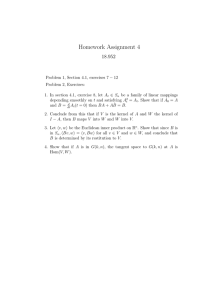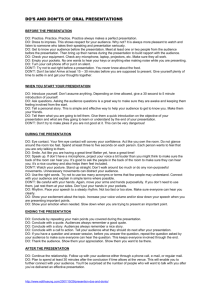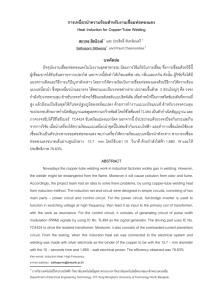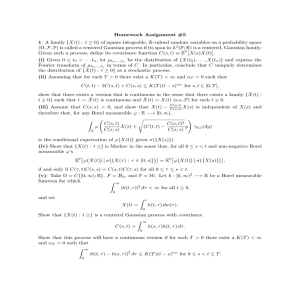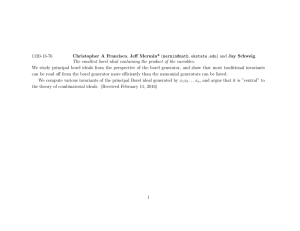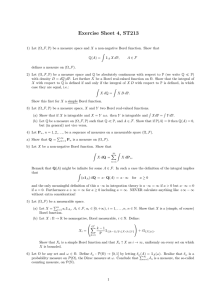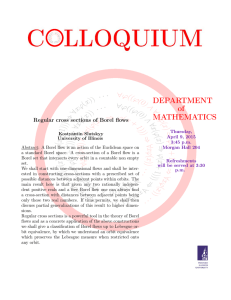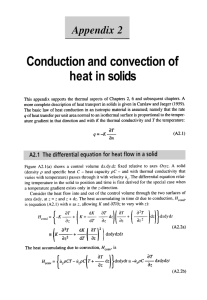Homework Assignment #1 1: Given m ∈ R
advertisement
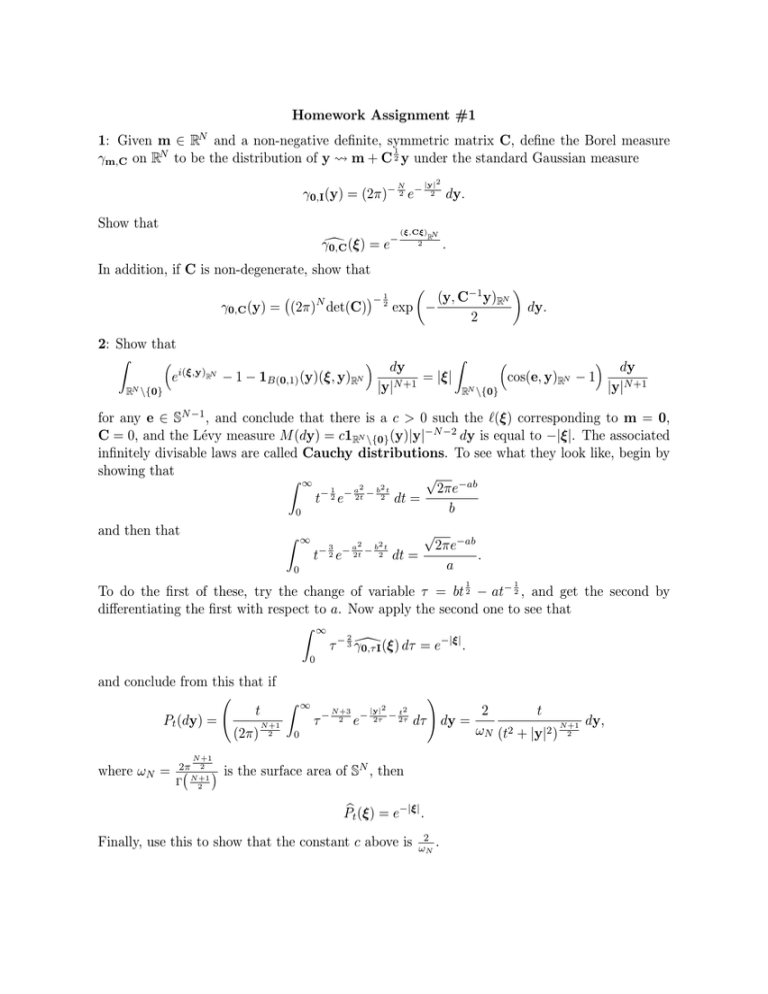
Homework Assignment #1
1: Given m ∈ RN and a non-negative definite, symmetric matrix C, define the Borel measure
1
γm,C on RN to be the distribution of y
m + C 2 y under the standard Gaussian measure
N
γ0,I (y) = (2π)− 2 e−
Show that
−
γd
0,C (ξ) = e
|y|2
2
(ξ,Cξ) N
R
2
dy.
.
In addition, if C is non-degenerate, show that
− 21
(y, C−1 y)RN
γ0,C (y) = (2π) det(C)
exp −
dy.
2
N
2: Show that
Z
i(ξ,y)RN
e
− 1 − 1B(0,1) (y)(ξ, y)RN
RN \{0}
dy
= |ξ|
|y|N +1
Z
RN \{0}
cos(e, y)RN − 1
dy
|y|N +1
for any e ∈ SN −1 , and conclude that there is a c > 0 such the `(ξ) corresponding to m = 0,
C = 0, and the Lévy measure M (dy) = c1RN \{0} (y)|y|−N −2 dy is equal to −|ξ|. The associated
infinitely divisable laws are called Cauchy distributions. To see what they look like, begin by
showing that
√
Z ∞
2
2
2πe−ab
− 21 − a2t − b2 t
t e
dt =
b
0
and then that
√
∞
Z
2
t
2
− 32 − a2t − b2 t
e
dt =
0
2πe−ab
.
a
1
1
To do the first of these, try the change of variable τ = bt 2 − at− 2 , and get the second by
differentiating the first with respect to a. Now apply the second one to see that
Z ∞
2
−|ξ|
τ − 3 γ[
.
0,τ I (ξ) dτ = e
0
and conclude from this that if
Pt (dy) =
where ωN =
2π
Γ
Z
t
(2π)
N +1
2
∞
τ
− N2+3
e
|y|2
− 2τ
t2
− 2τ
!
dτ
dy =
0
N +1
2
N +1
2
is the surface area of SN , then
Pbt (ξ) = e−|ξ| .
Finally, use this to show that the constant c above is
2
ωN
.
2
t
dy,
ωN (t2 + |y|2 ) N2+1
